Better than ever: Team CSC enters ProTour with tremendous focus for 2005
Team Profile, January 22, 2005 At a low-glitz, high-contact media presentation at Villa Paggeria...
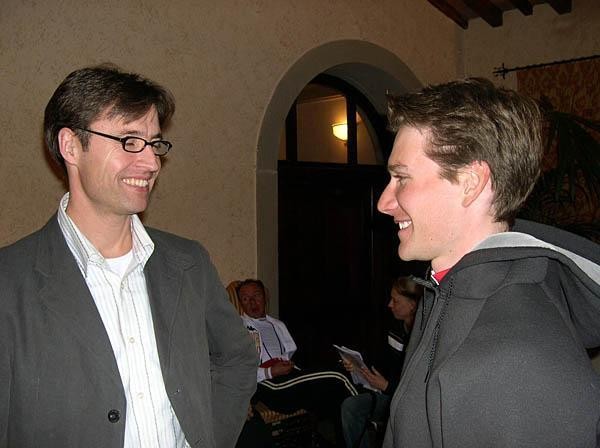
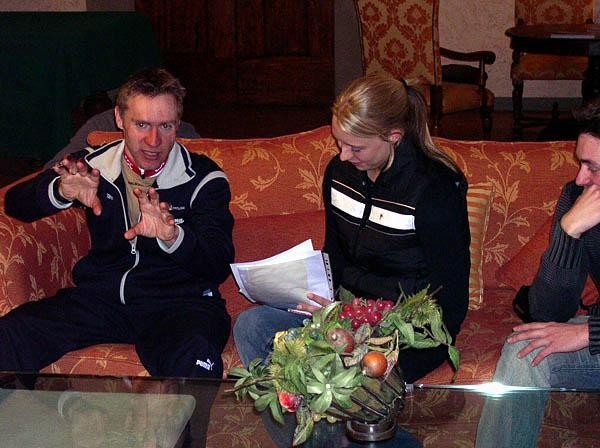
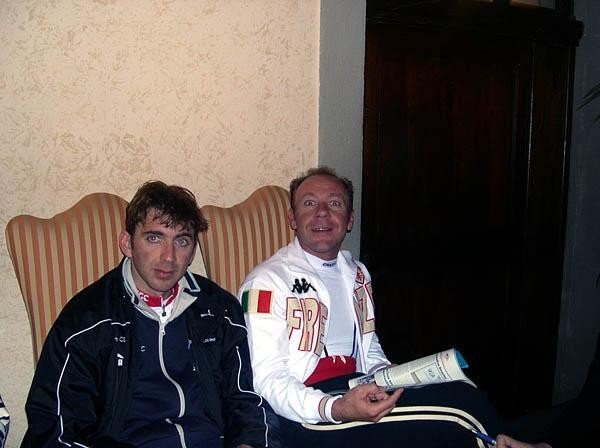
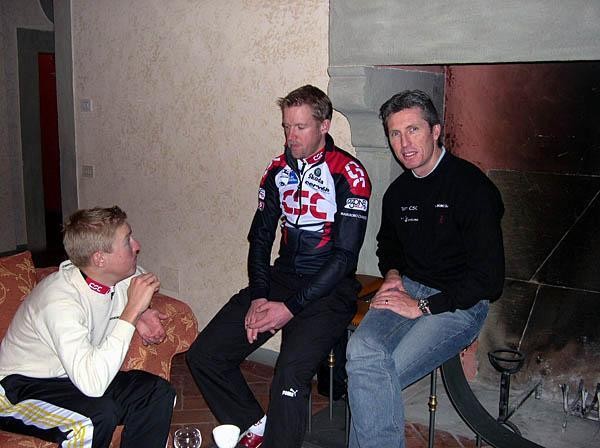
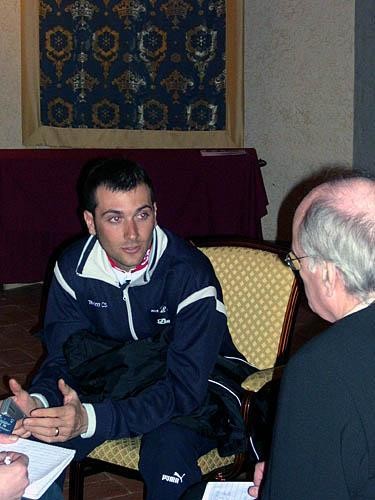
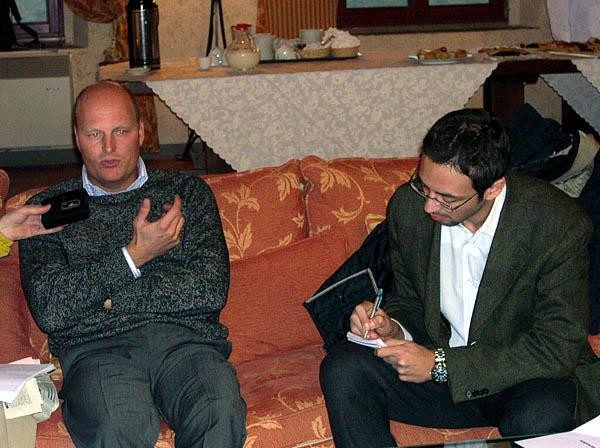
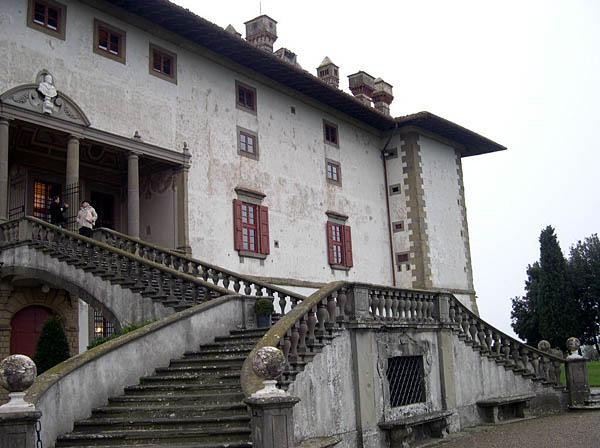
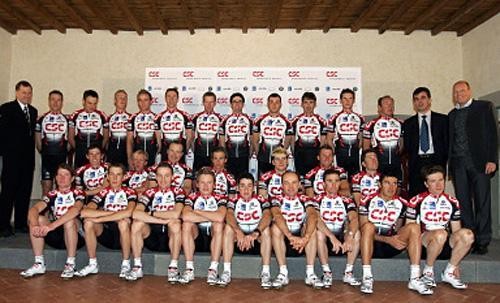
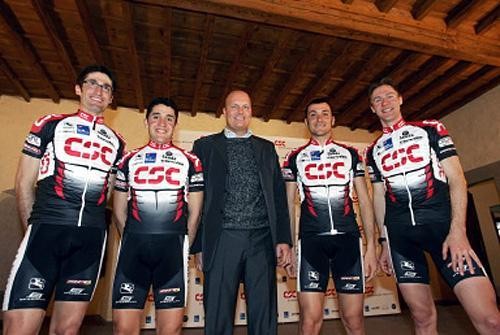
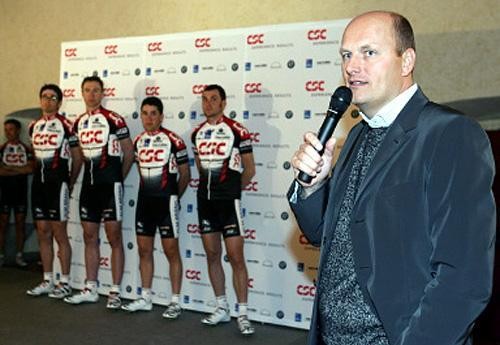
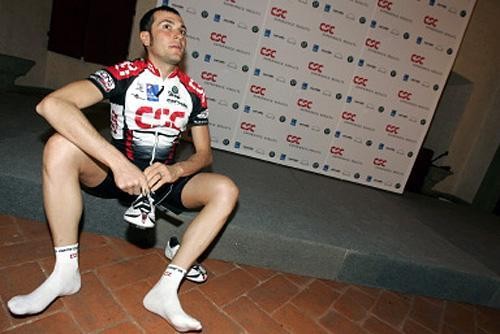







Team Profile, January 22, 2005
At a low-glitz, high-contact media presentation at Villa Paggeria Medicea in Artimino, Italy, Team CSC unveiled its roster for 2005, a team that looks to be one of the best ProTour teams this year. On a cold and snowy Sunday afternoon in the hills south of Firenze, Cyclingnews spent several hours with all the key members of Team CSC, including team manager Bjarne Riis, team leader Ivan Basso, Americans Bobby Julich and Dave Zabriskie and Jakob Storm Piil among others, to get the lowdown on what's up with Team CSC this season. Inside the villa, the atmosphere was warm and welcoming as CSC's always charming media manager Brian Nygaard made sure everyone got a shot at the CSC stars.
In Part One of our report, Cyclingnews talked extensively to CSC team manager Bjarne Riis in an exclusive one on one interview about how he has created a unique environment for success, as well as his biggest success story, Italian rider Ivan Basso, who had a breakthrough Tour De France last season to finish third in Paris.
Right up front, we asked Riis what his goals were for Team CSC as it embark on its 2005 season and he explained that, "We want to be present all year, to try to perform well in the spring classics, to win the Giro d'Italia and to have a good Tour de France with the strongest team there. Maybe we won't win the Tour, but we'll be there and we'll be in the front." Like his fellow Dane Soren Kierkegaard, who was called an existential humanist because he stressed the power of the individual and sought to put pressure on humans, Bjarne Riis has brought a existential, almost zen-like approach to running a pro bicycle racing team at CSC. Talking to the 1996 Tour De France winner is more like a discussion with the young CEO of a successful high-tech business than someone who runs a bike team. Looking into the intense blue eyes of Bjarne Riis, you become convinced that his approach isn't bs, since he has big time results to back up his talk.
We asked Bjarne about the highly touted "battle" between Cunego and Basso in the upcoming Giro d'Italia, but the Dane chose to take a contrarious perspective, saying "Forget it! That's not what the Giro is about... Everybody is trying to make a big deal out of this, but that's the worst thing you can do. I told Ivan 'we are focusing on the Giro, with or without Cunego, with or without Lance, with or without anybody. We are preparing the best we can for the Giro because we want to win it, and if you want to win it, you have to beat everybody; it doesn't matter who."
When Cyclingnews asked Riis to explain the basis of his successful approach at the team media presentation, he told us, "Awareness is a key word for me; to be aware of what you are doing and what you do. This allows you to motivate and coach your riders. Because I have a philosophy and idea on how I want to run this team in a certain way. The fundamental basis of this team is our values; I think we are the only cycling team in the world who works with values. And we also (integrate) those values... And we know what this is."
Riis delved deeper into his philosophy, explaining that, "The most important value is teamwork and to have teamwork, you need to have loyalty, respect, communication and commitment. If you have those things, you have teamwork. That's how you can fulfil our philosophy at Team CSC; that's what we are working a lot on here; spending a lot on. That's what we are. It's about not just having (teamwork) but using it in the right way to be a team." Riis explained that his reason for having the commando camp in December is that he tries to pressure the team riders in different situations; to see what's really inside them. This year, the CSC riders all wore the same clothes at the commando camp and Riis explained that, "I told them 'now guys, you look the same' on the outside and now I want to see what's on the inside."
Get The Leadout Newsletter
The latest race content, interviews, features, reviews and expert buying guides, direct to your inbox!
Riis wanted to see how his men did when they were under pressure, tired and stressed and could see "who is getting positive, who's getting negative, who is taking control, who is taking responsibility and who is not." And Riis sagely points out that this is the same situation as when the riders are under the pressure and stress of racing. "From this, we know who is going to react how and we can help them and put them on the right track again...This is very important."
"We take a lot of time to understand what it takes to be a team...loyalty, honesty. Like if you have a problem, you have to come and tell (the team management) because otherwise we cannot deal with it. I can't help a rider if he doesn't tell me how he feels inside. I have to know if someone is sick, or there are domestic difficulties, or their dog is sick. When I am making the strategy and tactics for a race, I need to know exactly what I am dealing with; what I can count on from my riders. So if they're not telling me the truth, I'll fail in my strategy and tactics. Oh, I know a lot of people in the sport say 'oh that's too complicated, you don't have to do that' but in my team you do, because that's how we work. I want to give my riders something they can use in the rest of their life after cycling; the mentality and lifestyle."
We asked Riis what had influenced him to arrive at this unique perspective in the still prevalent world of old-school cycling and the he was adamant that the old ways are "what I want to change. I have been there; I've tried it all and I've seen how poor (the old school approach) is. All this teamwork, loyalty, honesty doesn't exist in (old school) cycling. And this I want to change; at least in my team. If I see one day that it's not possible to do it the way I want, I'm out of it, I'm gone. I believe we need this new approach in cycling. Everyone's seen how cycling has suffered the last eight, ten years, and we need to change our approach; we need to think differently. That's what I'm working on."
One of Bjarne's biggest success stories has been Ivan Basso, the classy Italian, who after his excellent amateur career capped by the 1997 U23 World Championship, foundered a bit in the pro ranks. We asked Riis how helped Basso get to the next level as a pro rider and Bjarne was clear about his relationship with the 27 year-old from Varese. "I analyse the team situation that enables the rider to perform better. It's the small details which in the end make a big difference. Ivan, of course, he has the physical capacity to become a top rider. That's not a problem. And he has the mentality and discipline to succeed. He's not afraid to try something new. Ivan also looks at the small details to try and improve just a little bit more."
A few years ago, Basso was a rider who was somewhat timid, riding on an old school Italian team and we asked Riis how Ivan got to where he is today. "He wants to succeed. First of all, you have to have the ambition and drive to succeed. Then, he's gotten a lot more mature, especially after the Tour de France. He's a new Ivan and he's taking a lot more responsibility on the team for himself and for the team. He's not afraid."
Riis is in the unique situation of not only having lived through the crucible of winning the Tour De France, but of having seen his former Telekom teammate Jan Ullrich grow and mature with his Tour experiences. "Sure, the experience changed me and it turned me into a leader. You don't have to be afraid of being a leader; you just have to do it and if you need some tools to do it, like Ivan, we are here to provide those tools. To lead a cycling team is a lot of things and as I tell the riders 'take responsibility, guys...you're out there; you see hat's happening.' I do have a good feeling when I'm in the team car, but sometimes I don't see anything. So I tell the riders to take their own responsibility and don't be afraid to do that. You will fail sometimes, but if you don't fail, you'll never improve. We work a lot on that at Team CSC, because even if they fail, the riders know they have my full support even when they make a mistake."
Coming up soon: Part Two, where Basso, Julich, Zabriskie and other CSC riders talk about Riis and the 2005 season.